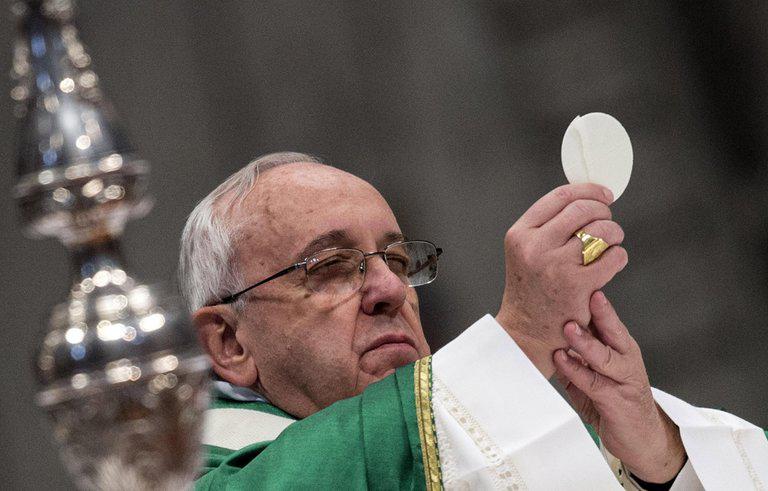|
Pope Francis’ Next Act
By Ross Douthat
The fourth, Angelo Scola, was another Benedict XVI confidant and a leading contender for the papacy at the last conclave. He retired as archbishop of Milan five days after Mueller’s departure. These four very different departures have a combined effect: They weaken resistance to Francis in the highest reaches of the hierarchy. And they raise the question facing the remainder of his pontificate: With high-level opposition thinned out and the Benedict/John Paul II vision in eclipse, how far does the pope intend to push? It is clear enough that Francis has friends and allies who want him to go forward in a hurry. They regard the ambiguous shift on divorce and remarriage as a proof-of-concept for how the church can change on a wider range of issues, where they have lately made forays and appeals — intercommunion with Protestants, married priests, same-sex relationships, euthanasia, female deacons, artificial birth control, and more. So too in politics, where the pope’s obvious hostility to Trumpian populism has been leveraged by some of his friends into a sweeping critique of all Catholic engagement with the political right, and especially the American Catholic alliance with evangelical Protestants. And so too in liturgical issues, where there is talk that Francis’s outreach to the Society of Saint Pius X, the semi-schismatic group that celebrates the Latin Mass, could lead first to the S.S.P.X.’s reintegration and then the suppression of the pre-Vatican II liturgy for everyone else — effectively using the S.S.P.X. to quarantine traditionalism. If so far Francis’s pontificate has been a kind of halfway revolution, its ambitions somewhat balked and its changes left ambiguous, these kind of ideas would make the revolution much more sweeping. But the pope himself remains both more cautious than his friends — the men he appointed to succeed Mueller and Scola are moderate, not radical — and also perhaps more unpredictable. His more liberal appointees can get ahead of him, as in the case of Charlie Gard, the dying English baby whose doctors and government won’t let his parents pay for an unlikely-to-succeed treatment. The pope’s refashioned Pontifical Academy for Life, which now accepts pro-choice and euthanasia-friendly members, issued a statement that seemed to support the government over the parents. But shortly thereafter, Francis intervened in support of the parents’ rights, creating a somewhat defensive scramble by his allies. This small example gets at a larger point. We know that Francis is a liberal pope, but apart from the remarriage debate we don’t know what priority he places on any given liberal-Catholic goal. Among many liberals there is a palpable ambition, a sense that a sweeping opportunity to rout conservative Catholicism might finally be at hand. But there is also a palpable anxiety, since the church’s long-term future is not obviously progressive — not with a growing African church and a shrinking European one, a priesthood whose younger ranks are often quite conservative, and little evidence that the Francis era has brought any sudden renewal. How much does Francis himself share either sentiment — the ambition, the anxiety? The next act of this papacy will tell.
|
.
Any original material on these pages is copyright © BishopAccountability.org 2004. Reproduce freely with attribution.
